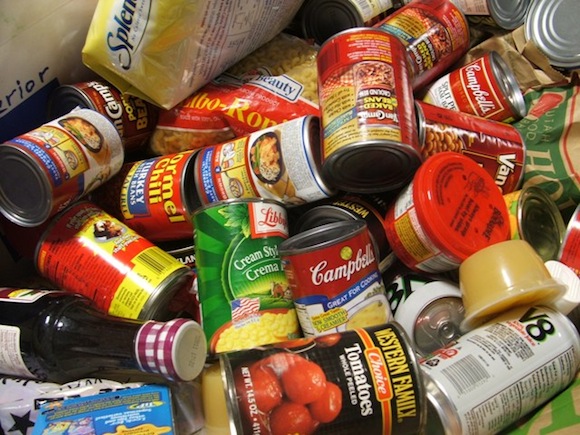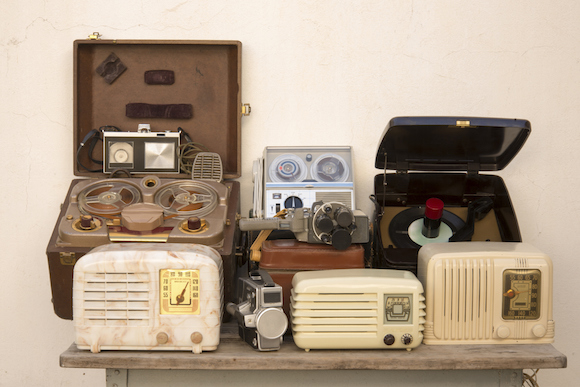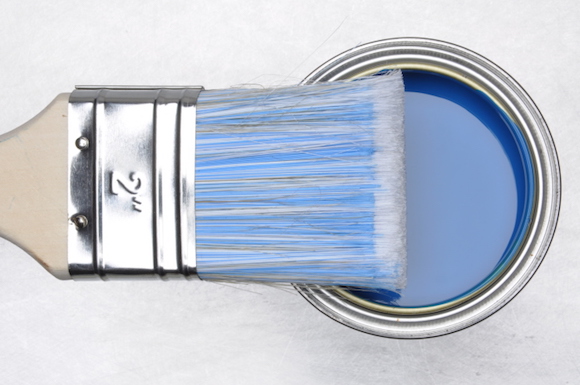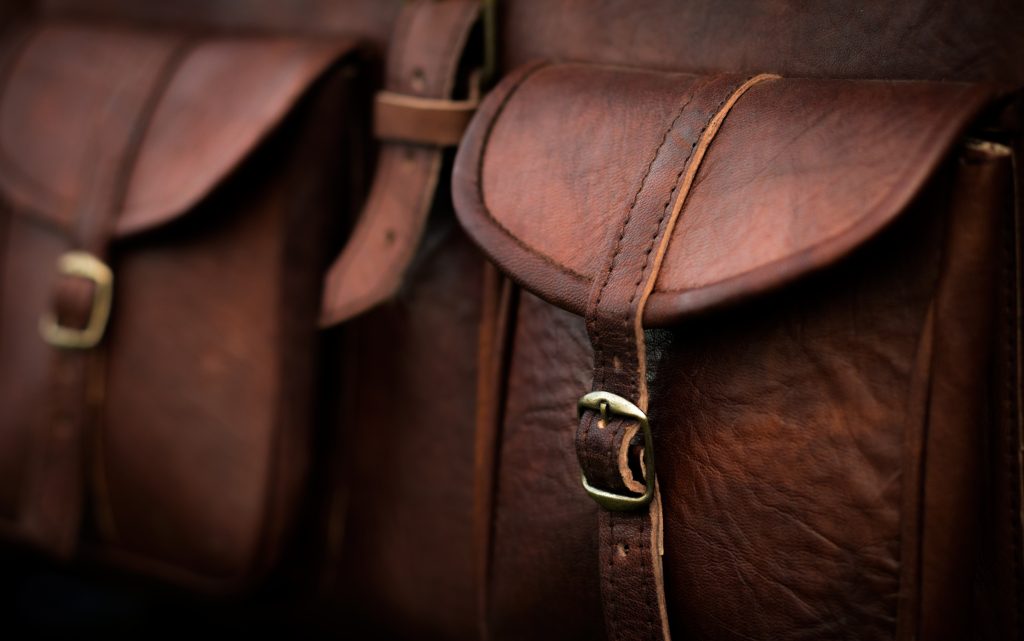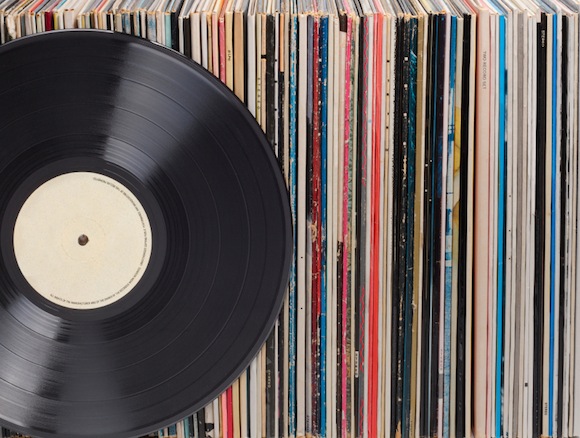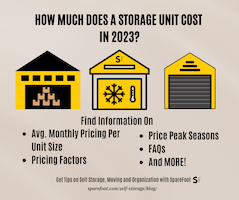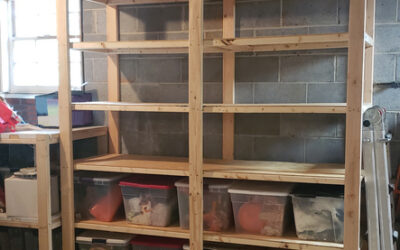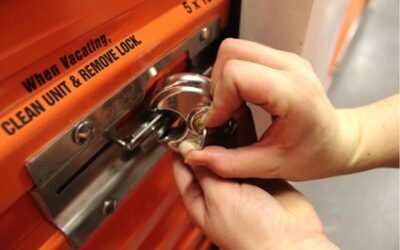Before you stash another box in your garage, think twice. That’s because the extreme heat, humidity, and fluctuating temperatures in garages tend to wreak havoc on items.
If you don’t have space inside your house, you might take certain belongings to a storage unit instead. Many self-storage places offer climate controlled environments to protect goods. Remember though, you can’t store perishables or hazardous materials at a self-storage facility either.
When deciphering through items you need to put away for a while, keep the following out of the garage:
1. Food
Canned food, pet food, birdseed, and other food-related items will quickly go bad in garage storage.
“High heat can spoil the canned items, and thawing frozen canned goods usually diminishes the quality,” says Bryan Stoddard, who runs Homewares Insider.
Keep pantry items in your kitchen or a storage space with climate control.
2. Propane Tanks
It’s hazardous to keep propane tanks in the garage—or in any inside storage. They could cause a fire or explosion.
If you need to keep propane tanks for a grill or lawn mower, look for an outdoor area and then follow precautionary measures.
3. Photos
Humidity can cause photos inside frames to stick to the glass. Sunlight may discolor any pictures too.
“Store photos in a climate-controlled environment in small archival photo boxes or acid free photo albums,” says Katherine Lawrence, a professional organizer and founder of Space Matters.
4. Furniture
Any wooden furniture like tables or chairs could warp, due to the extreme heat and humidity exposure. Sunlight will also cause discoloration, and mice or other critters could be drawn to the stuffing.
Big pieces that don’t fit in your home could be kept in a storage unit or other area where they won’t be exposed to the elements.
5. Electronics
Storing computer monitors, DVD players, old TVs, laptops, tablets, or any other type of electronic equipment in a garage will likely get dirty—fast. In addition, the extreme temperature fluctuations will often destroy previously-working pieces.
Clean, enclosed spaces with climate control are better options for electronics you want to use in the future.
6. Bedding
“Aside from the fact that the garage is a poor environment to store sheets and linens, you don’t want your bed sheets to become a nest for animals,” Stoddard says.
Your best bet for bedding is to store it in a linen closet or in dry, sealed containers in your home.
7. Hazardous Materials
Fertilizers, weed killers, paint thinner, and antifreeze could leak while they are stored in the garage. Flammable materials could also ignite or explode in a garage.
Hazardous materials are best kept in locked places where they aren’t susceptible to temperature fluctuations and sunlight, such as a utility room, basement, or well-insulated shed.
8. Appliances
If a washing machine or dryer is stored on the garage floor, condensation could seep in and damage the motors and interior parts.
While you can safely keep most appliances in a climate-controlled self-storage unit, take safety steps before moving them, such as cleaning them and drying out hoses.
9. Paint
Leftover paint from home improvement projects won’t keep well in most garages.
“Paint cans on cement floors rust quickly,” Stoddard says. Even if you have them on shelves, the temperature fluctuations can cause the paint to spoil.
Look for cool, dry areas of your home such as a basement or cupboard when storing paint.
10. Family Heirlooms
The temperature changes, along with the humidity and dampness, could easily destroy family keepsakes. Anything with fabric could also attract critters that will eat their way through the items.
Many family heirlooms can safely be kept in plastic bins in your home or a self-storage unit.
11. Blinds and Shades
The light that seeps into a garage could quickly cause your window coverings to fade and discolor. The temperature fluctuations and dampness might also weaken their structures.
Store blinds and shades in a dry, cool environment and keep them away from direct sunlight.
12. Candles
Candles will get ruined in high temperatures, and the melted wax could wreck other goods stored close to candles.
Store candles in sealed containers in cool, dry areas of your home.
13. Books
The pages of books could start sticking together inside a garage. Bugs will eat through pages and bindings as well.
Store books in dry, cool areas of your home or in a storage unit.
14. Mattresses
The moisture inside a garage could lead to mold in mattresses.
For a better storage solution, keep mattresses in a climate controlled, clean room or closet.
15. Clothing
“Clothing is susceptible to mold and damage from pests,” Lawrence says.
Mice might chew on fabrics or nest inside the clothes. Other bugs, such as silverfish, could also create holes and ruin the attire.
Keep clothing in sealed plastic bins in a closet or storage unit.
16. Artwork
Child drawings and paintings will fade and discolor in a garage. Dampness could also damage the canvas or wooden frames.
Look for a space that is dark, clean and cool to keep artwork in good condition.
17. Cardboard
“Cardboard boxes absorb moisture and become soft, and their contents are susceptible to water damage and mold,” Lawrence says.
Keep cardboard boxes in a climate-controlled storage unit or room that is dry and cool. Recycle unwanted cardboard promptly.
18. Leather
If the temperature in a garage drops too low, leather items could freeze and crack. The humidity and temperature fluctuations can also ruin leather pieces.
Look for climate-controlled areas to store leather goods, such as a basement or storage unit.
19. Important Documents
Birth certificates and diplomas could get sticky in a damp environment, or destroyed by hungry critters.
“Store financial and legal paperwork in a climate-controlled environment away from pests and moisture,” Lawrence says.
20. Bottled Water
Temperature fluctuations could alter the taste of bottled water. Keep bottled water in your kitchen pantry or fridge so it stays fresh.
21. Vinyl Records
Extreme heat will cause vinyl records to warp and become unplayable. Your tunes will also be exposed to dirt and grime that can scratch the delicate surface.
Store records upright in a temperature-controlled room or closet.
A Final Word
When deciding where to store items, bear in mind the environment inside garages tends to have temperature fluctuations and humidity. Many self-storage units offer climate-controlled environments designed to keep goods in good condition. You’ll be able to store items there and have them ready to use in the future.
